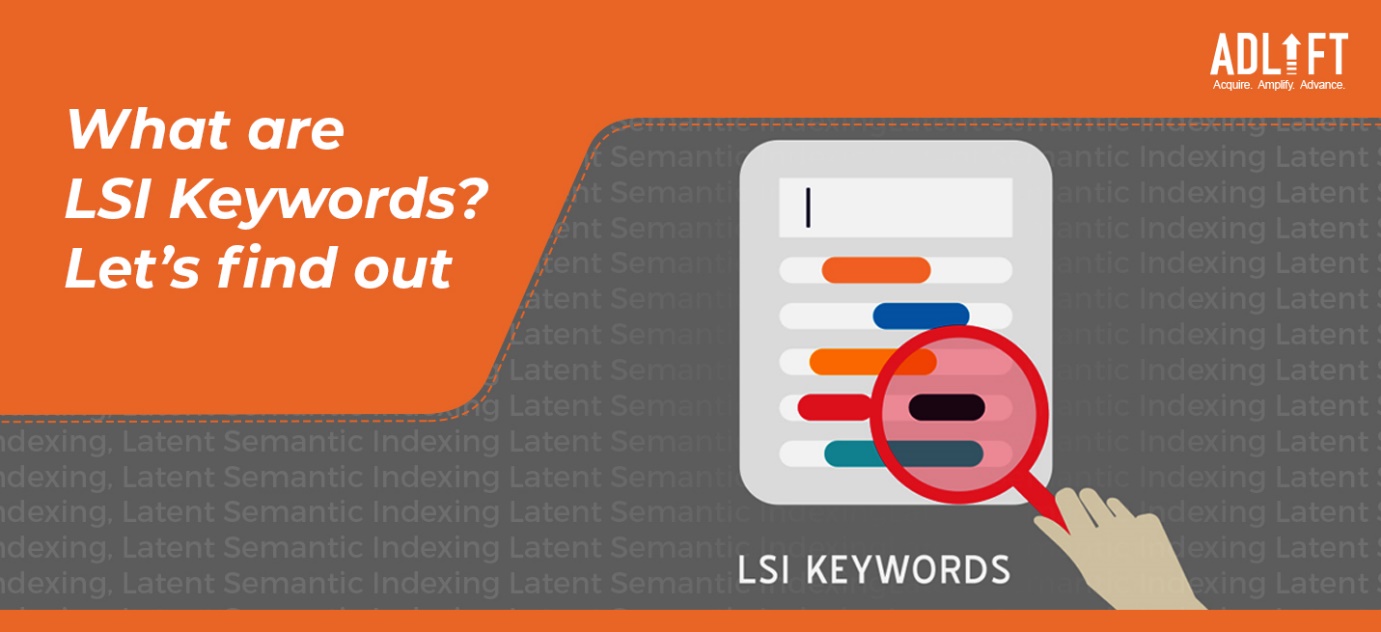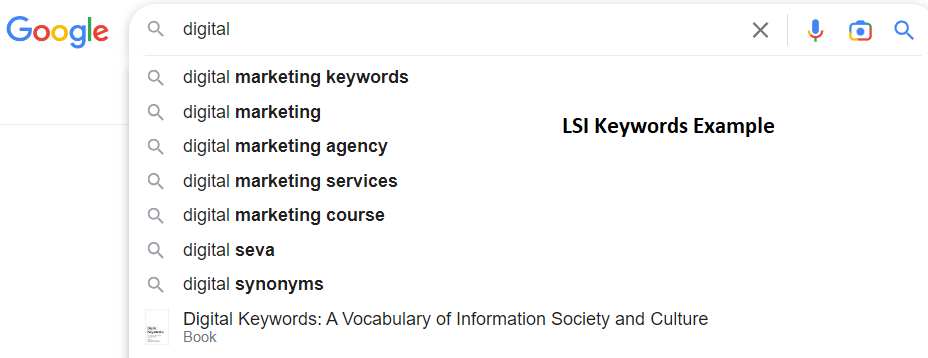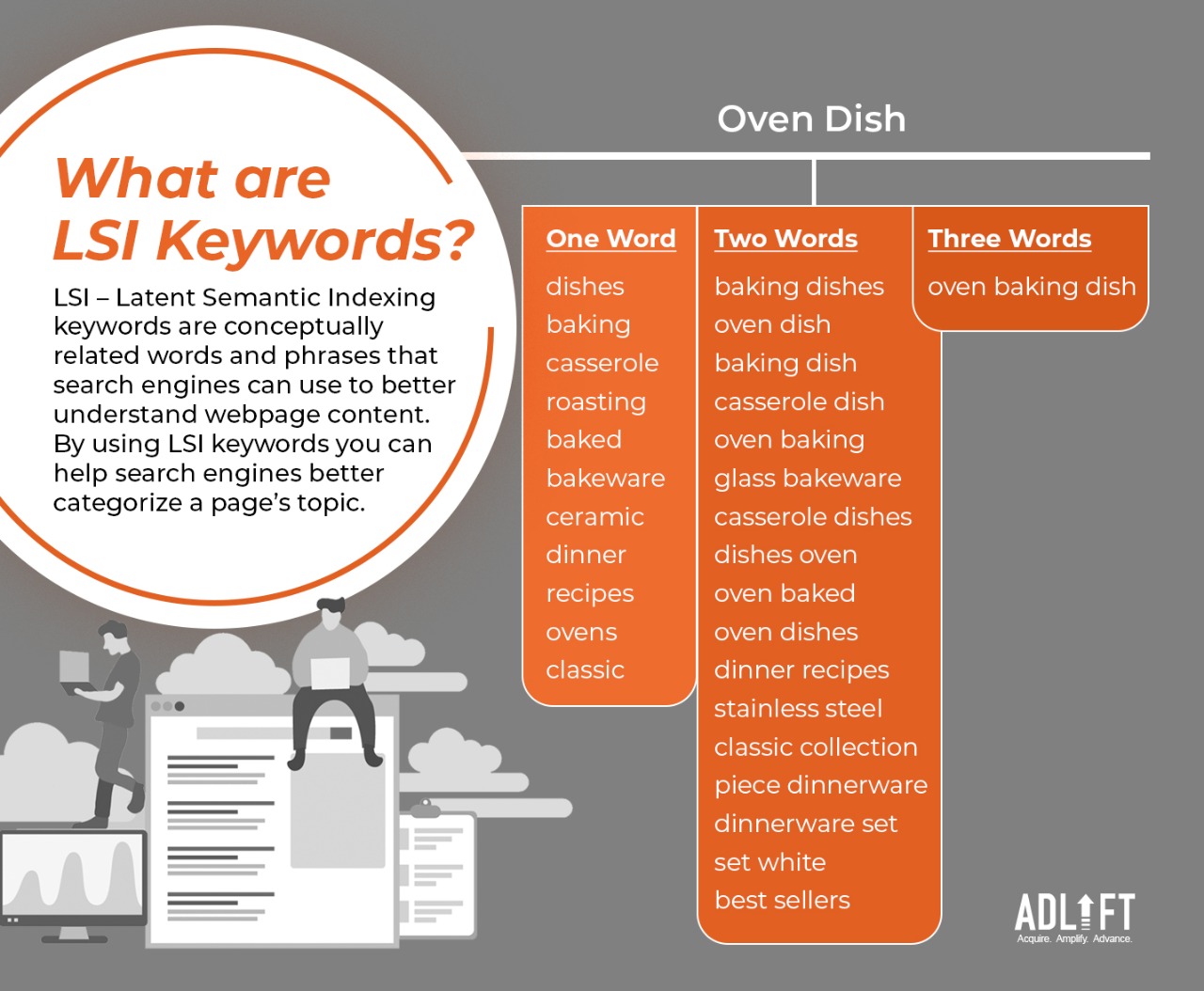Using Latent Semantic Indexing to Improve SEO

Latent semantic indexing has an intimidating ring to it, invoking people in labs poring over reams of paper. A search on the internet doesn’t help disabuse this sense either. Although it sounds quite daunting, you’ve likely already been working with LSI keywords if you’ve ever dabbled in the magical arts of the internet, which we call search engine optimization or SEO.
What are the Basics of Latent Semantic Indexing?
Latent semantic indexing – you might see it called latent semantic analysis as well – is a way of essentially analysing a whole bunch of text to see how many times certain words appear in the text. The aim is pretty simple: to figure out what the text is talking about without having to manually read every sentence.
If you’re familiar with SEO, you might already be able to see how LSI keywords can be useful. If not, we’ll explain – keep reading!
How Do Latent Semantic Indexing Keywords Work?
Latent semantic indexing is a tool designed to grapple with two problems in the world of SEO: synonymy and polysemy. Synonymy – where the word synonym comes from – refers to words that mean the same thing. For example, someone searching for concrete and someone searching for cement are looking for the same thing.
Polysemy, on the other hand, refers to when one word can have different meanings. For example, let’s say someone just performed a search for “oven dish”. They could now either be looking for recipes to bake in the oven, or they could be looking to shop for kitchen utensils that can be used in the oven.
If you’re a business that sells oven-safe bakeware, you don’t want to end up in a search that offers up either recipes or ovens, do you? This is where LSI keywords come in: they are a way of clearly communicating with search engines to tell them about the context in which your website should be shown to searchers.
LSI keywords are based on a straightforward but solid principle: when you use similarly themed keywords – always organically and naturally – throughout your content, you’ll find your SEO significantly boosted. For instance, if you’re relevant to a search for “oven dish”, it’s a good bet that your content will also be related to “baking cookware”, right?
How to Find Latent Semantic Indexing Keywords?
You’re sold on LSI keywords, you say. How do you start looking for them now? There are a few easy-to-access ways!
1. The Search Engines
Type a core keyword relevant to you into your search engine of type, and you’ll be inundated with suggestions. These suggestions are a great way to get a sense of what LSI keywords are working with your primary keyword. These keywords will also be specific to particular geographical locations and even search histories; keep that in mind if you choose to use a search engine to find LSI keywords.
Search engines are a great starting point for your LSI SEO journey, but there are other, more thorough ways to dive deeper.
2. LSI SEO and LSI Keyword Tools
There’s a rich host of both free and paid LSI keyword research and generator tools out there, just waiting for you to find them and get your hands dirty. They are specifically designed to account for polysemy and synonymy and generate LSI keywords. For your part, the method is quite simple: type in your core keyword, hit submit, and voila!
Some examples of latent semantic indexing tools today include Keys4up, LSIGraph, Ultimate Keyword Hunter, Niche Laboratory, and so on.
3. The Process Itself
Finding LSI keywords is a relatively easy bit. The difficult part comes when you take the time to discern which keywords are actually relevant to your content. This involves having a keen understanding of your users’ search intent as well as the precise context in which you are a good answer to that intent. Thus, using LSI keywords from your research without careful consideration will not boost your LSI SEO. You must, instead, choose the most relevant LSI keywords for your content and use them naturally and organically throughout your content.
What are the Benefits of Latent Semantic Indexing Keywords
While boosting your SEO ranking is obviously one of the great benefits of LSI SEO, you’d be surprised how much LSI keywords can do for the quality of your content itself. When you use LSI keywords, you’re choosing to utilize a rich and varied vocabulary in your content, simultaneously boosting SEO and the quality of your content.
Your target users, too, will enjoy and prefer content that doesn’t repeat the same keyword endlessly – people can spot that kind of SEO tactic from a mile away these days. LSI SEO lets your SEO remain subtle and fly under the radar.
What is the Impact of Latent Semantic Indexing on SEO
As with all aspects of SEO, using LSI SEO with other strategies – such as high-quality and structured content that is relevant to your searches, good research, and thorough keyword research – can seriously boost your rankings on websites! In other words, don’t make it your only strategy for SEO!
Ultimately, search engines want to give their users the best and most relevant content out there; when you target your content using latent semantic analysis, you are essentially choosing to play well with search engines. All the stakeholders – you, your users, the search engine – benefit from LSI SEO when it’s used well by centring accurate and relevant content through LSI keywords. A happy user, a happy search engine, a happy business!
With all the advantages of LSI SEO previously listed, one of the most powerful impacts it has on your SEO is that LSI keywords allow you to boost the visibility of your content without having to resort to the dreaded keyword stuffing.
Conclusion
Should you be investing your time in LSI SEO, then? The truth is, it doesn’t matter if LSI keywords are counted in search engine ranking factors; LSI SEO simply makes for better and more relevant content in the long run. As long as you’re using your LSI keywords well – organically, legibly, and without any overstuffing – LSI keywords can greatly contribute to the depth and breadth of your content. An expert digital marketing company like AdLift can help you find the right balance when it comes to latent semantic indexing, allowing you to focus on what you do best: running your business.
FAQs
1. What does LSI keyword stand for?
It stands for the Latent Semantic Indexing keyword.
2. What is LSI in SEO?
LSI SEO refers to the analysis and use of synonyms based on the context of your SEO strategy.
3. What is an example of an LSI keyword?
If your content is based on “home appliances”, LSI keywords would include refrigerators, ovens, air conditioners, etc., along with home electronics and home devices.
4. How do I use LSI keywords?
You use them exactly like you’d use regular keywords: in your headings and metadata and by strategically and organically peppering them throughout your content.
5. How Can I Get Free LSI Keywords?
You can use tools such as LSIGraph, Keys4up, Semantic Link, and Niche Library for free to find LSI keywords.


